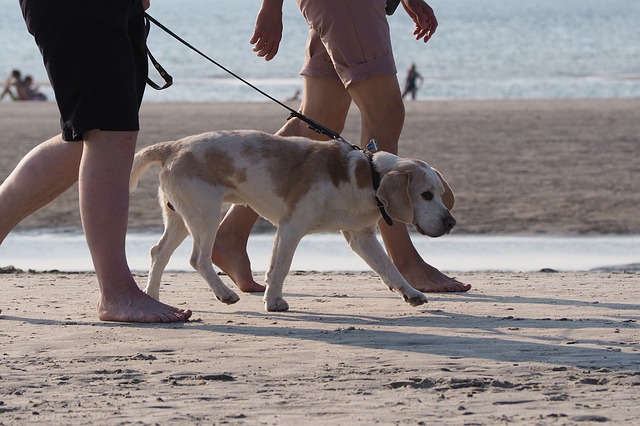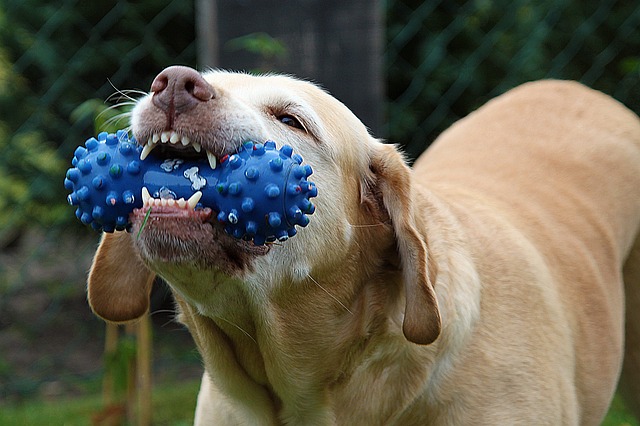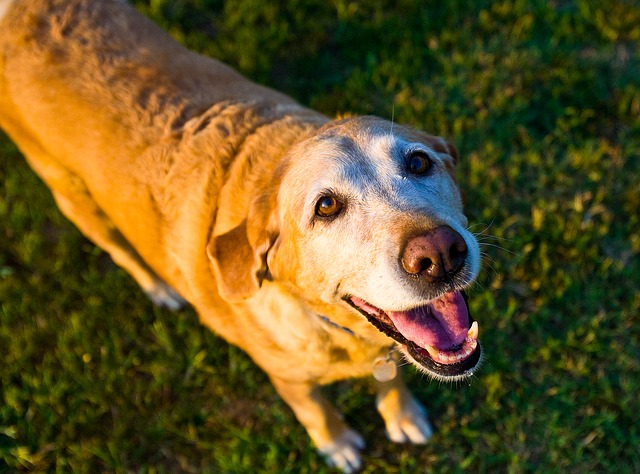As our dogs age, their bodies change and their needs will start to differ. While they’ll always be our baby puppies, our senior dogs are going to have some special needs. They become more sensitive physically and mentally, their bodies and minds start to change, and they will need some extra help living out their golden years in happiness and health. If you’re wondering how you can make life better for your aging pup, consider these tips.
#1 – More Beds
Senior dogs generally spend more time sleeping than their younger selves, so giving them some extra beds and blankets to lie on will be much appreciated. The softer the better, because as our dogs age, their bodies become stiffer with arthritis and hard surfaces will be painful to lie on.

#2 – Stairs & Ramps
Just like people, age brings stiff joints and decreased mobility. Our dogs still want to be by our sides wherever we go, so helping them get up and down stairs, in and out of the car and more can really make life easier for them. Using a ramp or steps to help your dog get around will save their bodies and make being near you an easy task.
#3 – Diet Change
Just like people, a dog’s nutritional needs will change over time. Older dogs need different amounts of certain nutrients than young dogs and puppies, and they need less of others. Work with your veterinarian to decide which diet is best for your senior dog. You might not need to change your dog’s food, but you’ll likely change the amount and any supplements you’re giving them. At this age, proper dental health is vital, as your senior may already be suffering silently from periodontal disease.

#4 – Keep Active
Just because your dog is old in body doesn’t mean they are in mind! Your senior dog will still want to spend time with you. You might not go on backpacking trips or play frisbee as long as you used to, but keep tossing your pup’s favorite toy and going on walks as long as your dog can do so without pain. Being active will also help keep your dog’s body and mind functioning well. The more active they are, the healthier they’ll be.
#5 – Extra Comfort
As our dogs age and their bodies change, these changes will bring about more sensitivity. Your dog will be more susceptible to hot and cold weather, so make sure you’re able to keep them cool during summer and warm during winter. Fans will help with heat while coats will help with cold. Your dog will need a little extra help staying comfortable, but it’s an easy task.

#6 – Mobility Assistance
As mentioned earlier, age often brings arthritis and other ailments. Keeping your dog active will help maintain their mobility throughout their old age. This keeps their muscles and joints used to moving and prevents atrophy and muscle fatigue. Supplements might also be recommended by your veterinarian to help with any pain your pup might be experiencing. Most veterinarians recommend starting your dog on a joint supplement even before they are in their senior years. Many dog owners are turning to an Omega-3 supplement, which provides a wide range of anti-inflammatory benefits as well as working to support healthy joints.
Related: 11 Best Supplements for Senior Dogs
#7 – Increased Veterinary Care
As your dog ages, you’re likely going to be visiting your veterinarian more often. This is because so many ailments come with age. Joint pain and mobility issues, weakened immune systems and other age-related illnesses often set in during your dog’s senior years. You’ll also want to switch to regular check-ups more often if your veterinarian recommends it, as certain ailments such as cancers and organ diseases should be detected as early as possible.

#8 – Weight Control
In the same way your dog will need different nutrients in their senior years, they’re going to need different amounts of calories as well. Weight change is very common in senior dogs. They are either getting too many nutrients and calories and become overweight or are struggling to maintain a healthy weight because their muscles are weakening and they are becoming thinner. Work with your veterinarian to make sure your dog maintains the appropriate weight.
 Toledo, United States.
Toledo, United States.